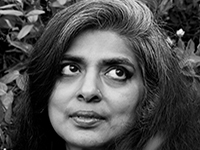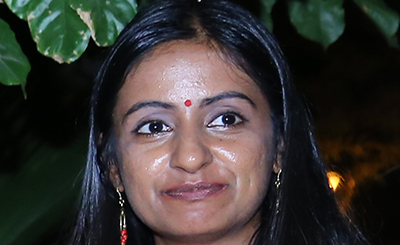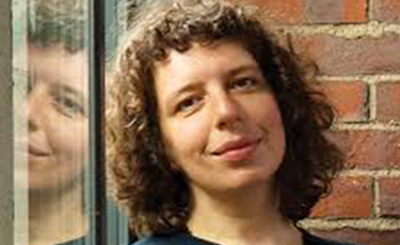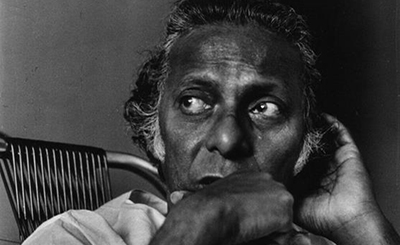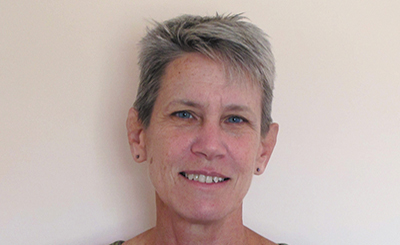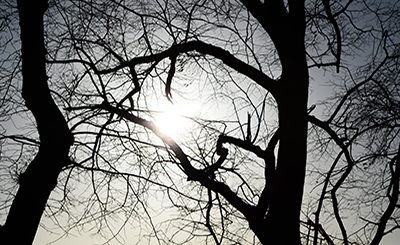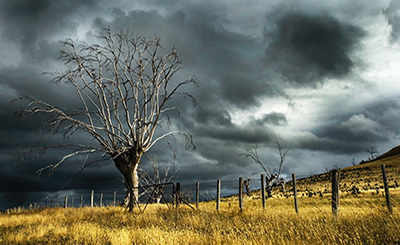
The essence of poetry is movement
To me, the essence of poetry is movement, the movement of words across a line, the movement of lines across a page, the movement of a poem from the poet to a reader. Along the way, there are multiple translations, the act of writing is a translation, putting what one thinks on the page, the act of reading another translation, and time is perhaps the ultimate translator of the poem.
It is perhaps because I relate poetry to movement that I primarily conceive my poems while walking. I might say lines in my head, or out loud if no one is near, or record them on my phone. I consider the unique breath-signature of a poem as its “bone,” the scaffolding upon which its length and breadth rests.
This foregrounding of orality is related to my early immersion in the culture of Urdu poetry, as experienced at an early age through family gatherings of bait bazi, essentially a competitive exercise of memory, to the performative traditions of the mehfil and mushaira. Layered on top of a classical grounding in Ghalib, Mir and Dagh, my teenage years were spent with the poets of political protest such as Faiz and Habib Jalib as well as their Latin American contemporaries, Pablo Neruda and Octavio Paz.
In my twenties, I migrated to the US and was fortunate enough to meet and hear the Beat poets Allen Ginsberg and Anne Waldman perform. Living in New York for nearly a decade from 1988 to 1997, I encountered the work of the African American poets, Audre Lorde, Gwendolyn Brooks, Ntozake Shange and Lucille Clifton.
I was also influenced by the Indian-American poets AK Ramanujan, Agha Shahid Ali, and Meena Alexander, whose poetics of exile and dislocation resonated deeply with me. I began to have a sense of language not as the fixed edifice I had been taught in the classroom but rather as a shoreline that was constantly being remade. Thus began my evolution from a poet who wrote separately in English and Urdu, to writing the way I speak and think, in multilingual, polyvalent registers.
Tracing the etymology of English words to their Proto-Indo European ancestors through poetry was a kind of reclamation, reuniting origin words with their offspring brought language full circle as evoked in my poem, ‘Blood Orange’ “from narangi to narañjo & then/like an umbilical stem/the nascent n snaps/& orange rolls, round/dimpled and English/out of our mouths”.
Shifting the lens through which I view English has freed me to experiment with the architecture of a poem. This could include the use of bilingual homonyms that serve to decolonize English by inserting hidden subtexts in poems intelligible only to those who are both desi and anglophone, or breaking up the uniformity of the language by infusing it with the sonic and linguistic richness of Urdu and Hindi. Stained Glass is an example of an entire poem written around “sun,” a double meaning Urdu/Hindi word. My engagement with the Urdu ghazal is also present in my treatment of the poetic line. I often seek to subvert the basic structure of modern English poetry, that of sentences with line breaks, by asserting the independence of the line as a self sustaining unit of meaning on par with the status it enjoys in the form of the Urdu ghazal.
Out of all the language arts, I am most drawn to poetry because it is not bound by any utilitarian constraints, it celebrates our being rather than our doing, and that is its beauty.
Storm
At three am unable to bear
the pain any longer I call
911. At three twenty five the paramedics are wheeling a mis-
carriage down, gurney to ambulance
in the dark, clear December night
alive with shooting stars
We are only tenants in the house
of beauty, a dreadlocked poet said, passing out
leaflets on Telegraph Avenue
2 hours later, sheets soaked in blood, the nurse
injects morphine, a faint blur
leaves the door ajar, I see
Your pregnant silhouette
moments before the Eclampsia
hits, the random doctor’s visit that saves
your life and here I am in bed
with death, dark red, wet clot
body full of body turning
to rot. Only smell ripens this way
making strange objects. Papaya flesh both knife and womb
seeds turning to brittle peppercorns, I taste
the spoon in your mouth before I was born
vertiginous cut transverse splay, imagine
fishing out a baby and leaving
a sea marooned. I used to play
with your belly’s many holes, stick
little fingers in their hollow cores. A knock
is all it takes to come and go. A storm in between
the cup and lip, as the saying goes.
B Word
Of all the b words used to define
often demean women, like broad
and babe and bitch
I like bird the best. How she nests
warm against a breast
one minute. Gone the next
I am a creature of such flights
such slow filling quills. My feathers’ snow
white sheets speak ravenous nights
Words whirl seed, I can’t wait
to stick my beak in. Here
comes the line, a bird
In the hand, open wide
Weight
When my water broke, it had no color
only heart-race, a foreign sensation
weighing anchor to plant
Biology in geography, settling
underneath flux, Pacific note
sweet spot where you nest
Even now, taller by a head
son-flower, I watch the west go-
downed in twin moons of your eyes
My eyes dark circles, bead pain-
staking claim to each sharp knell
glassed in the daily feed
The sum, thing I am trying to pin
top most, mind your man and tend
a bean, to grow and tow that line-
Up end yellow tape, white silo
flashing red, wearing blue
weight that comes to a head.
Undocumented
Unbecoming I, coming loose
from aerial root, slow hanging
consonant in the trafficked jam
man-âhat: sound of self, startle reflex
keeping mouth shut useless
hunger opens you like a pick-
pocket
*tirchi phirti kirchi khirki fly
moths out under radar of surveilled night
casualties in waiting, table number two
2
Frankly ten benjamins rolled up tight
make the traffic stop nothing but
a close shave with ICE, window to palm
in the scheme of things a hair
to brush past, paper over
paper sshh reds a synapse
xeroxing silo, sigh low, fog the lens
*ache her back, her bum bay bow
go around the bend to stay, a trophy, darling green
card liquid, off duty eating language standing
in the United Tastes, e pluribus umami, ramen, ramen.
3
At the traffic signal, hallucinating
an eight-armed Goddess Lakshmi
Atop each torso a dot -
head, yellow, red and green bindi
No, my religion is not Hindi
look closely and you will see
A neon pink lotus trembling violently
the lower left hand corner of Avenue C
Photo negative elephants of prosperity
raining your parade under the table, we
Sleep four to room in basement slum
I was a doctor once
Suture comes from sutra
So up my future ghosts with white wine and iodine
Forgive if I mix up cartographies
Black Thursday, White Friday, hand to month lease
February, NYC, muddle of walk/don’t walk I’m lost
Looking for the *amaltas blooming at Humayun’s tomb
*man-âhat, sound of the self, a word play on Manhattan
*tirchi phirti kirchi khirki: crooked, wandering, shattered, window
*ache her bake her bum bay bow: autocorrect’s rendition of akkar, bakkar, bumbay bo, a line of nonsense children’s poetry
* amaltas: an ornamental tree with vibrant yellow flowers that usually blooms in winter in North India.
Stained Glass
Urdu sun doesn't rhyme with one
no snug homonyms in Queen’s
English but like the sea, returns
amputees opposable thumbs
to heinous hum — sun/sun a Janus word
lost muslin, white as they, gone and stain
Urdu sun is, as if the moon
missing round milk tooth
chutes a mouth to gulp a sound
in suck of spun and spoon, a means
to listen, or be numb
impossible to sum — to some
sync and kink as language coins
an age, adage, baggage tossed
lands on edge in pitch, dark
I pluck here, hear, line fracture.
The essay and the poems are part of our Poetry Special Issue (January 2022), curated by Shireen Quadri. © The Punch Magazine. No part of this essay or the poems exclusively featured here should be reproduced anywhere without the prior permission of The Punch Magazine.
More from The Byword
Comments
*Comments will be moderated



